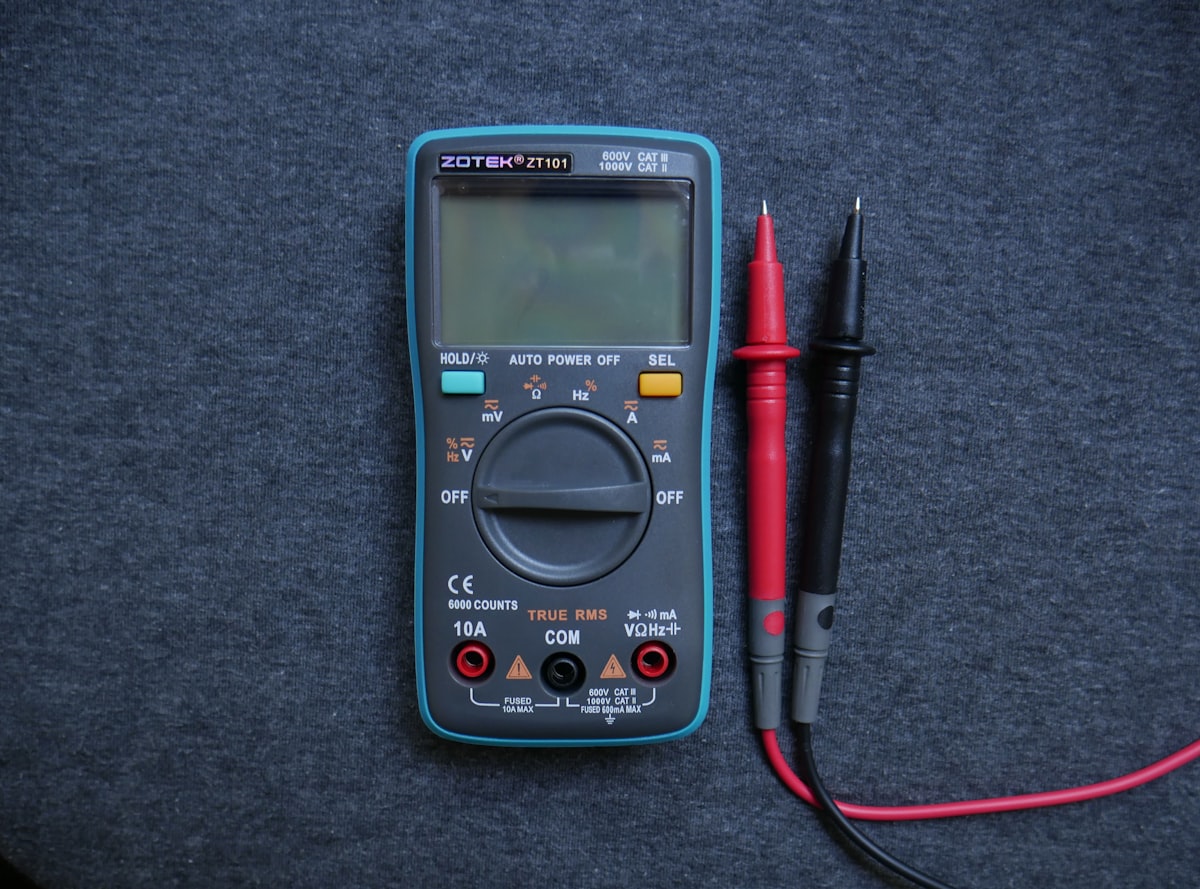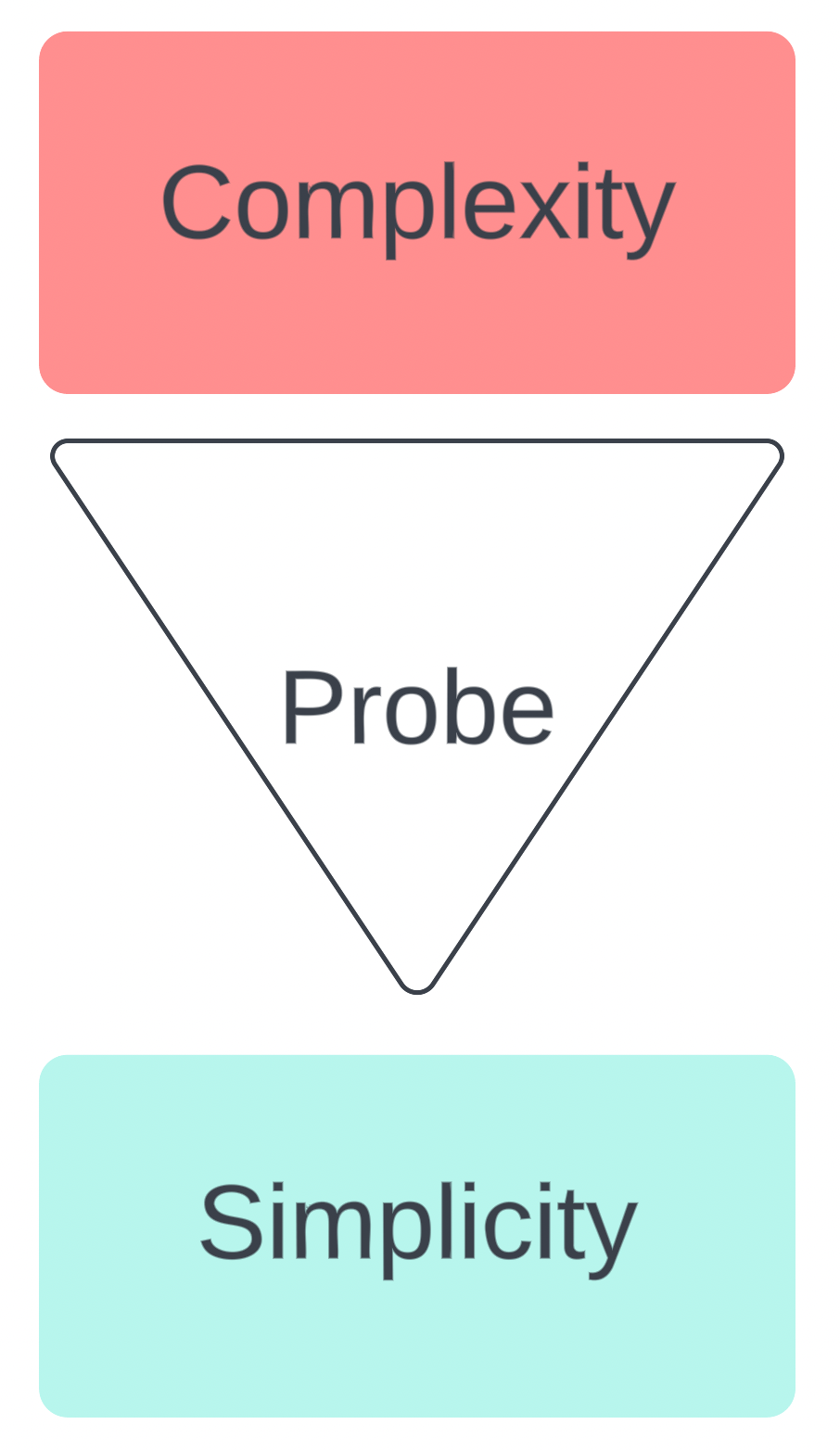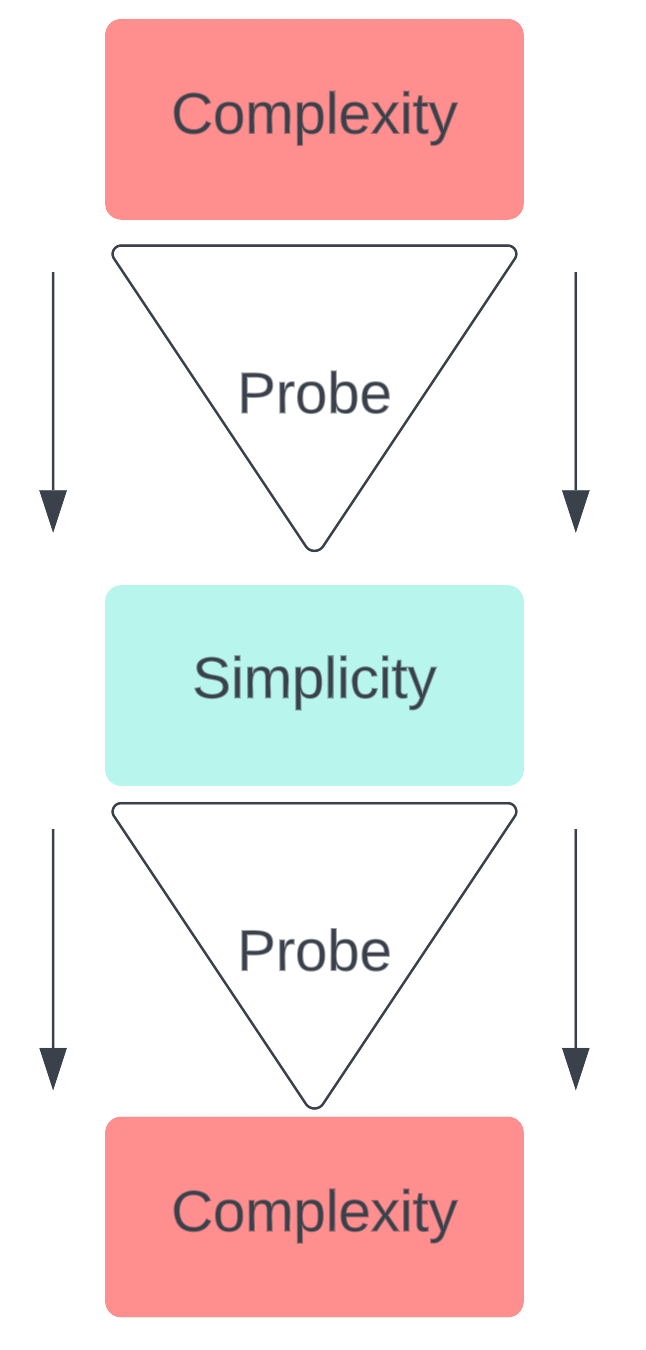The Simplicity Probe

All insight is knowledge distilled into its purest form. But the world is complex. Dynamic. How do you then go from complexity to insight? You probe for simplicity. You try to reduce all nuance into its simplest digestible form.

But probing has its own side-effects because it requires you to edit + alter the system. Doing so can further complexify the dynamic system, for when you interact with a system, you induce a change. The change induced is a non-linear change. For example, take any system:
- Compound interest accruing over time is a small change over time that becomes non-linear,
- The R-value for COVID is a small factor that has an enormous impact on the spread of the disease,
- A bit of sugar has a non-linear effect on the sweetness of the final product.
When you probe, you end up shifting things around in the process of interacting with the system. Much like how grain is winnowed and wheat is separated from the chaff. At this point, you have two things to deal with: the wheat, and the chaff. Your complexity has increased. You now have this situation:

The challenge, here, is to find the insight, or figuratively, the needle. You're now engaged in mental CrossFit. You frantically look for it in both the wheat and the chaff, and that alters the system again, further increasing the complexity. The effort put in when you look for the needle, necessarily induces a change in your existing configuration, and that is the problem here. (Look up Heisenberg's Uncertainty principle for more.)
How do you function then?
Well, you are brutally precise in your insight-hunting effort. As you probe, you consciously take note that you don't increase the system's complexity. You alter the system only very mindfully, and not frantically. You take extreme caution in looking for the insight.
To draw this concept to the 'real world', this idea forces you to expend valuable cognitive resources only very sparingly. Which necessarily reduces the change that you inadvertently increase a system's complexity.
So, probe, but probe for simplicity, not complexity.
Until next time,
Abhinav
PS: I wrote another article about a Chief of Staff's perspective, on delivering KPIs. Here:

